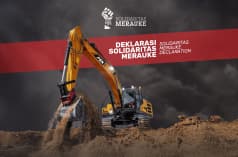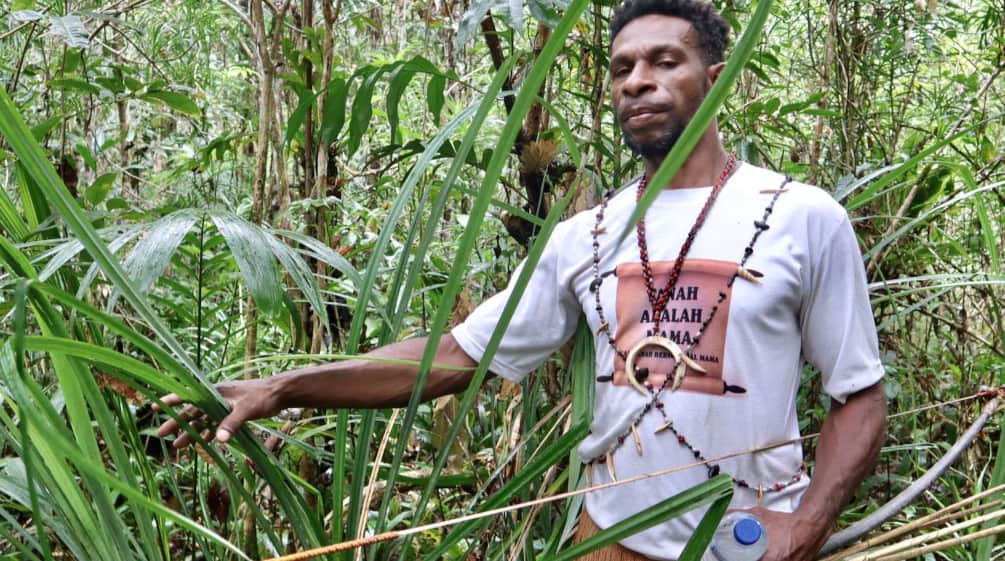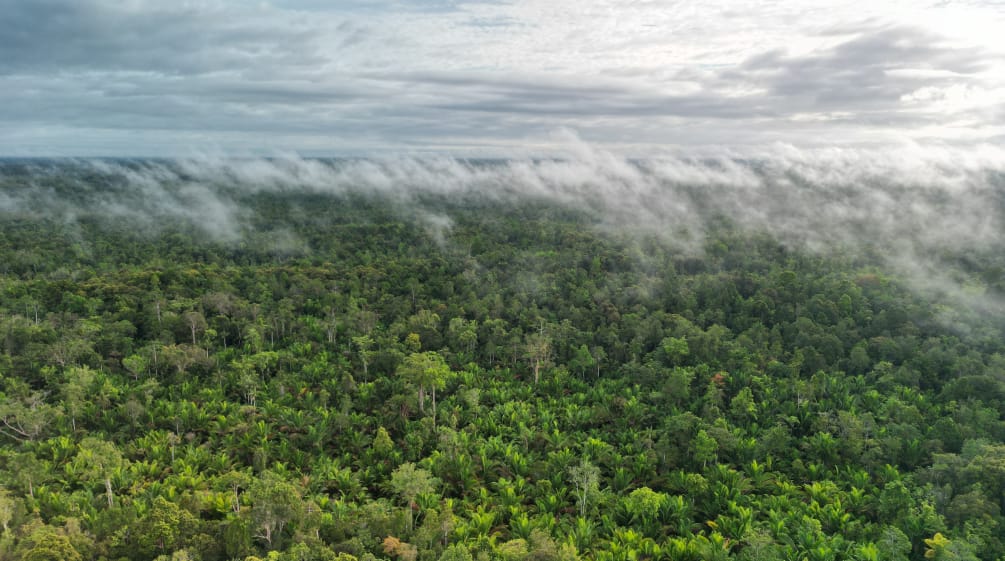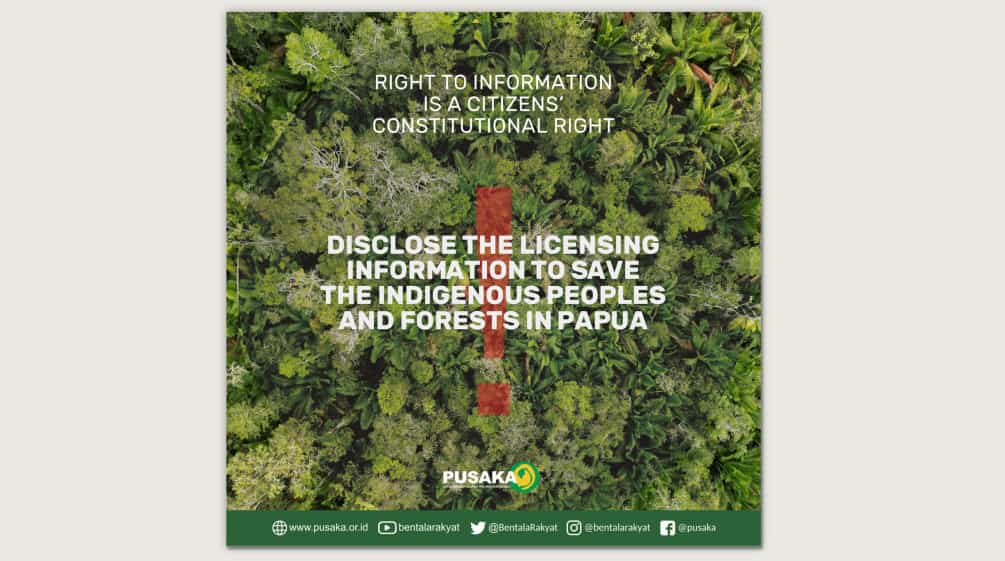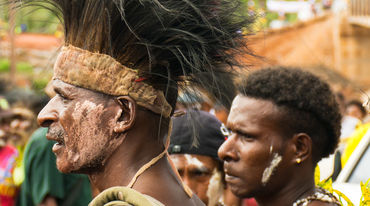Indonesia: Violations of traditional forest rights in Papua
Mar 8, 2023
Indigenous people in Indonesia have constitutional rights to land, to information and to free, prior and informed consent regarding the status of their land. Yet the situation in Boven Digoel, Papua, shows how difficult these are to enforce.
Hendrikus Woro is weary. He can’t say how many times he’s walked to the Boven Digoel District Environmental Office – four kilometers there and four kilometers back, and always in vain. His objective is to obtain information about the status of the land to which his Indigenous people have a right under the Indonesian constitution. The government, however, still considers the forest to be state-owned and grants concessions to companies without consulting the people living there.
We Indigenous landowners are being denied the right to our ancestral forest and the right to information.
The government has apparently awarded 280,000 hectares of forest in the Boven Digoel district to palm oil companies without informing local people, let alone asking for their consent. To date, it is unclear which companies are involved and where exactly the boundaries of this huge area – nearly twice the size of Greater London – lie.
One thing is certain: this has been the territory of the Indigenous Awyu – to which Hendrikus Woro belongs – and other Papuan peoples for generations. Ever since rumors arose about the conversion of their forest into an oil palm plantation, Hendrikus has been contacting the authorities. The Awyu have repeatedly stated that their forest must not be destroyed – as is their right.
According to the constitution, traditional communities have a right to information. Neither official websites nor the local media yield any information about the megaproject that would spell the end of the largest rainforest in the Asia-Pacific region. Again and again, the Awyu have approached the various authorities, only to be brushed off. They wrote letters, but received only a single reply from the Office of Investments – which stated that the office was not responsible. Hendrikus Woro’s efforts show that the Indigenous people’s right to information is frequently denied with impunity.
The district of Boven Digoel is located in the southeast of Papua, the Indonesian part of the island of New Guinea. A dense rainforest with mighty merbau trees and many endemic species covers almost the entire area – except for the barren logging concession of the notorious Korindo corporation.
In mid-2021, a port was built on the upper reaches of the 500-kilometer Digoel River. Ships unloaded heavy equipment and clear-cutting began immediately. The Papuans relied on a ritual to save their forest. The trees were marked:
Whoever cuts down this tree will be severely punished according to traditional law.
When all hope seemed lost, the Awyu turned to our partner organization Pusaka and a legal aid organization. In response, the authorities have made access to information even more difficult, demanding complete lists of all indigenous people, all landowners, all households, all organizations and the presentation of all identity cards as well as other papers. These requirements can hardly be met in the remote and isolated area with almost no infrastructure. Pusaka has obtained the environmental impact assessment of the project, however. The fact that such an assessment even exists indicates that this large area of rainforest has already been granted in concession to palm oil companies – without consultation and without the consent of local communities.
The authorities are impeding and violating our right to information.
The right to information is enshrined in the Indonesian constitution. Furthermore, Indigenous peoples and affected communities have the right to free, prior and informed consent (FPIC). To disregard these rights is to break the law, which means that the planned oil palm plantation will be illegal from the outset.
FPIC is a right protected by international human rights standards to ensure that people can determine their own economic, social and cultural development. It is vital when infrastructure projects or the exploitation of natural resources have an impact on communities. FPIC is based on the Declaration on the Rights of Indigenous Peoples, the Convention on Biological Diversity (CBD) and Convention 169 of the International Labor Organization.
The Awyu have the right to decide whether they want to sacrifice their forest for palm oil – or not. Hendrikus Woro has filed a lawsuit with the administrative court to settle the issue. Rainforest Rescue will continue to support Pusaka and the Indigenous people of Boven Digoel.
The Awyu people and the right to information
Using the example of the Awyu people of Papua, Indonesia, the NGO Pusaka shows how Indigenous peoples are denied their constitutional rights to information, to land, and to freely consent to destructive projects.


